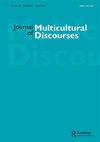Studying ideology and discourse as knowledge, power and material practices
IF 1.6
Q3 COMMUNICATION
引用次数: 0
Abstract
The notion of ideology plays a crucial role in the social sciences in general and discourse studies in particular because it helps us conceptualize, problematize and understand the complex relationship between language use and power structures. In this respect, ideology analysis contributes to a holistic, multilevel and complex understanding of discourse (Shi-xu 2014). The research programs of social scientific approaches to ideology and the still emerging field of discourse studies show several similarities and parallel developments. For both programs, knowledge and power, symbolic realities and their material mediation, as well as the practical production and consequences of knowledge and belief systems are at the very center of interest. During the last century researchers in both fields crossed their way, engaging in debates that enriched the understanding of ideology as a phenomenon as well as of discourse research. It could even be argued that discourse studies were founded on the shoulders of the giants of ideology research. Francis Bacon’s analysis of idola, left Hegelian critique on religion and inverted consciousness fromMarx, to Lukács, and Gramsci’s notion of hegemony have been highly influential when the linguistic turn in social sciences and humanities lead the research agenda to the specific influence of language for the construction of social perception. Here the work of Louis Althusser has to be mentioned. His theory of ideology can be seen as hinge between Marxist notions of ideology and discourse studies. His focus on ideology as representation of an imaginary relationship and a material reality, or the conceptualization of the constitution of subjects through the semiotic practice of interpellation can be understood as a starting point for the arising multidisciplinary research program of critical discourse studies. Finally, Foucault’s work on discourse, power and subjectivation has inspired contemporary scholars analysing knowledge as a political tool that is forming people’s identities (Foucault 1980). Important inputs came also from Fairclough’s work on the relation of ideology and power (1989) as well as from Laclau and Mouffe’s (1985) radical stance on hegemony and towards the discursive foundations of realities. Neither discourse nor ideology is a particularly well-defined phenomenon. For both, we can easily find a wide range of definitions (see, e.g. Eagleton 1991; Herzog and Ruiz 2019). In contrast to approaches which perceive ideology as immaterial beliefs, in the last decade we observe a return of ideology critique and theories of ideology in social研究作为知识、权力和物质实践的意识形态和话语
意识形态的概念在社会科学,尤其是话语研究中发挥着至关重要的作用,因为它有助于我们概念化、问题化和理解语言使用与权力结构之间的复杂关系。在这方面,意识形态分析有助于对话语进行整体、多层次和复杂的理解(石旭,2014)。意识形态社会科学方法的研究计划和仍在兴起的话语研究领域显示出一些相似之处和平行的发展。对于这两个项目来说,知识和权力、象征性现实及其物质中介,以及知识和信仰体系的实际生产和后果都是利益的中心。在上个世纪,这两个领域的研究人员相互交叉,进行辩论,丰富了对意识形态这一现象以及话语研究的理解。甚至可以说,话语研究是建立在意识形态研究巨人的肩膀上的。当社会科学和人文学科的语言学转向将研究议程引向语言对社会感知建构的具体影响时,弗朗西斯·培根对偶像崇拜的分析、从马克思到卢卡奇的左黑格尔对宗教和颠倒意识的批判,以及葛兰西的霸权观都产生了巨大的影响。这里不得不提到路易斯·阿尔都塞的作品。他的意识形态理论可以看作是马克思主义意识形态和话语研究之间的纽带。他对意识形态的关注是对想象关系和物质现实的表征,或者通过质询的符号学实践对主体构成的概念化,可以理解为批判性话语研究的多学科研究计划的起点。最后,福柯关于话语、权力和主观主义的工作启发了当代学者将知识作为一种政治工具来分析,这种工具正在形成人们的身份(福柯1980)。费尔克劳夫关于意识形态和权力关系的著作(1989年)以及拉克劳和穆菲(1985年)对霸权和现实话语基础的激进立场也提供了重要的投入。话语和意识形态都不是一个特别明确的现象。对于这两者,我们可以很容易地找到广泛的定义(例如,参见Eagleton 1991;Herzog和Ruiz 2019)。与将意识形态视为非物质信仰的方法相反,在过去的十年里,我们观察到意识形态批判和意识形态理论在社会中的回归
本文章由计算机程序翻译,如有差异,请以英文原文为准。
求助全文
约1分钟内获得全文
求助全文

 求助内容:
求助内容: 应助结果提醒方式:
应助结果提醒方式:


